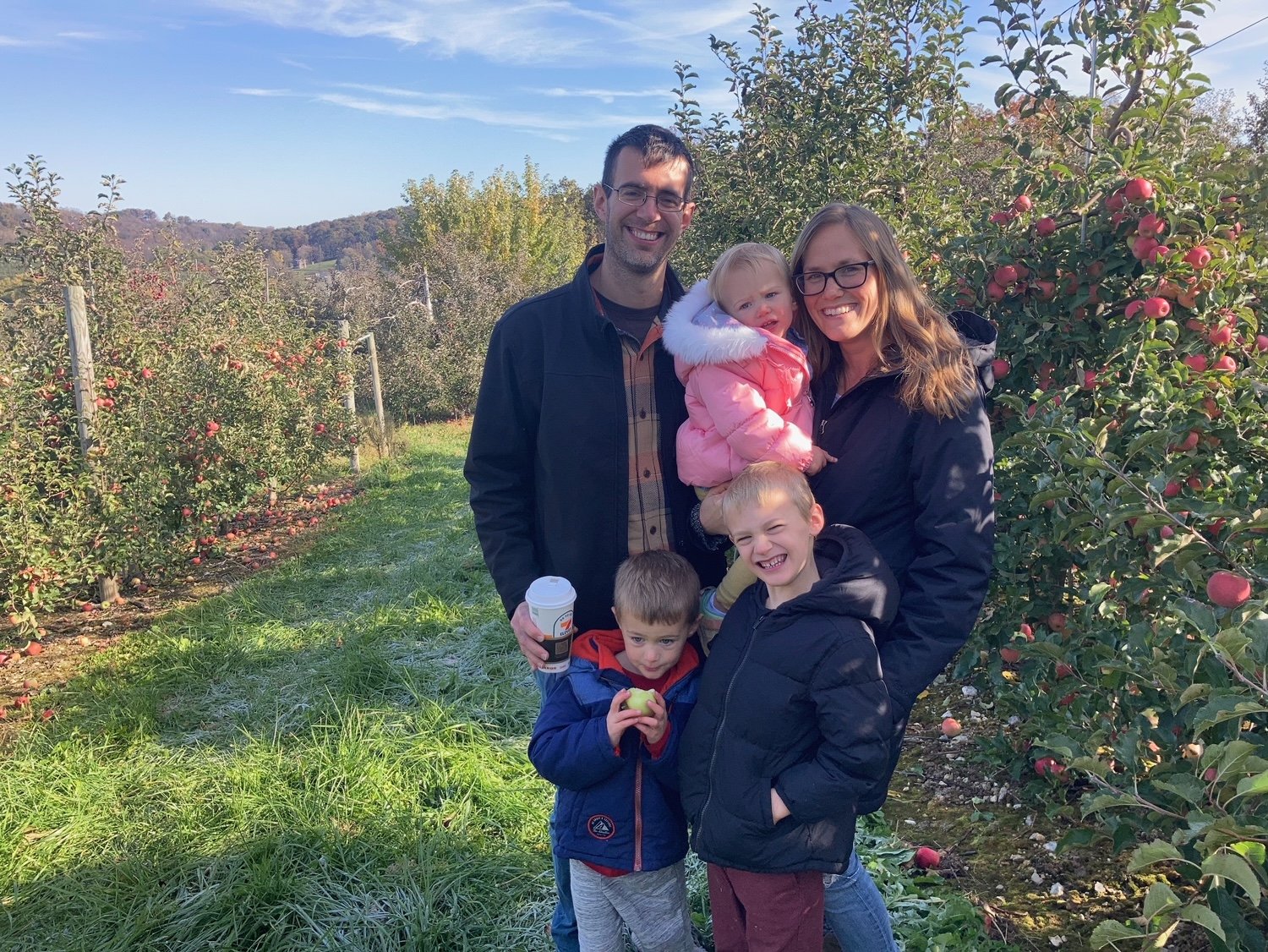Maybe Next Year
The other night, I had one of those drives when everyone else in the car was asleep. Typically, this would be blissful, as our car rides tend to be filled with boys arguing over toys and a toddler screaming about snacks. But this time, it was raining and my eyelids were heavy.
To assuage my weariness, I turned up an Andrew Peterson CD (that’s right – a real, live CD) we just picked up at a concert of his. There are some songs on that album that I love: “I’ve Seen Too Much,” “Remember Me” and “Is He Worthy?” But on the precipice of New Year’s, a different song captured my interest: “Maybe Next Year.”
Credit: https://abc11.com/new-year-york-times-square-2020/6537412/
That’s the motto, isn’t it? On New Year’s Eve in 2019, I remember watching a broadcast from Times Square where Ryan Seacrest waxed eloquent about the hope of a new decade. That sentiment lasted a couple of months. Maybe 2021 would be better? 2022?
This isn’t a new phenomenon. There’s a reason that unused gym memberships are the stereotype of New Year’s resolutions. We have longed used the New Year as a chance to hope again – to gather ourselves together and point our lives in a certain direction. We want to lose weight, to read more, run a certain number of miles, or whatever fits our desire/disappointment at the time.
I don’t mean to make light of this inclination. Rather, I think that God knows that we are the sort of people who drift. We need seasonal reminders to do this re-centering work. After delivering Israel from Egypt, knowing that they would forget what he had done, God integrated rituals of remembrance into their daily lives. For instance, each time the harvest came, they were called to remember God’s faithfulness and provision that they might renew again their trust and hope in Him. It was a time to reset and renew their direction.
For me, and I think for many others, the New Year is one such seasonal reminder. A sense of hope accompanies the new year. This year, I find myself in a place of personal frustration. I want to be more other-focused and shed my need to make things about me. I get stuck in cycles of consuming media and food that is bad for me. Right now, I feel stuck. But weirdly, a new year pulls me into the chorus of Seacrest: maybe next year…
Credit: https://centricitypress.com/artist/andrew-peterson/
This yearning, this hope, is God-given. There is something in each of us that wants more, wants better. The Psalms and prophets are riddled with calls to hope in God, to look for a new day dawning. Andrew Peterson reflects this biblical hope:
Like in that city that we long for, that we feel so far away
Where the dawn will drive away our tears
And we'll meet in the New Jerusalem someday
Maybe next year.
Jesus told us that the kingdom of God is at hand. Paul tells us that peace that surpasses understanding is an indicator of life in the Spirit. But, as Peterson says, this reality sometimes feels far away. Culture wars rage, as does Covid. Ghislaine Maxwell reminded us that power breeds wickedness we thought impossible. Many of us know someone who is sick and fighting for their life. The pervasiveness of mental health issues continues to grow. “Why, Lord, do you stand far off? Why do you hide yourself in times of trouble?” (Ps. 10:1)
It is in the face of such trouble that we can read Paul’s words in Romans 5:
“And we boast in the hope of the glory of God. Not only so, but we also glory in our sufferings, because we know that suffering produces perseverance; perseverance, character; and character, hope. And hope does not put us to shame, because God’s love has been poured out into our hearts through the Holy Spirit, who has been given to us.” (Romans 5:2b-5)
These verses suggest two audacious things. First, we should hope in the glory of God, though all indications suggest that God’s glory will not win out. Second, we glory in the suffering itself.
Many people will set a new course this New Year’s Day. Some of us will end up reading 40 books, getting a raise, and looking like fitness trainer. Others will gain weight and waste unprecedented time on Instagram. But these verses remind us that our hope is not based on whether or not things look like they are going to be okay. Our hope is not that God will finish off all the good things we’ve done. Instead, hope that is distinctly Christian is a hope that beauty will come out of ashes, that life will come out of death.
How could we be so audacious as to hope in the midst of such disappointment? Paul anticipates this question and answers it in the next verse:
“You see, at just the right time, when we were still powerless, Christ died for the ungodly.” (Romans 5:6)
How can we glory in the suffering? Because we can see what Christ has done for each of us. You can remember that it was when you came to the end of yourself that you found him. It was when you were powerless, at the most unlikely time, that hope was realized. Mysteriously, God weaves the dissonance of our tragedy into the melody of his symphony.
I hope many of you run lots of miles, lift heavy weights, reduce your screen time, give generously, read lots of books, find help with your mental health, call your friends more, and eat mostly healthy food. I truly wish for you to succeed in these things – I think it is good for us to do so. But most of all, I hope that you will hold on to the unthinkable hope that the kingdom of God would break into your life and the world around you.
Come, Lord Jesus.




